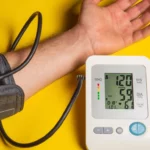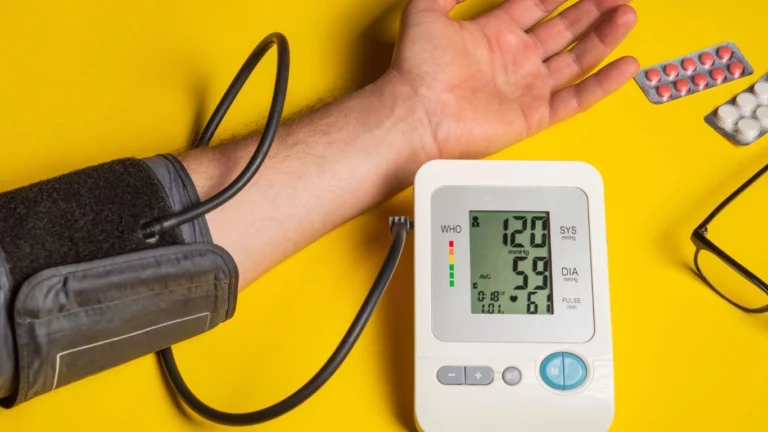Plant-Based Diets and Hypertension Reversal – The Power of a Plant-Based Lifestyle
Curious about how a plant-based diet could help reverse hypertension? You’re not alone! More and more research is showing that switching to a plant-based lifestyle might just be a game-changer for managing blood pressure. Let’s dive into how this diet works and why it’s gaining so much attention for hypertension reversal.
When it comes to managing or even reversing hypertension, many people are turning to plant-based diets. You’ve probably heard the buzz, but what exactly does this mean for your heart health? And can simply switching up your meals really make a difference? In this guide, we’ll break down how a plant-based diet plays a crucial role in controlling blood pressure, what foods to eat, and some tips to make it all work for you.

What is Hypertension?
Before we get into the plant-based diet specifics, let’s quickly talk about hypertension (high blood pressure). It’s a condition where the force of the blood against your artery walls is too high, which can lead to serious health issues like heart disease, stroke, or kidney problems. It’s often called the “silent killer” because there may be no obvious symptoms, making it tricky to catch early.
Can a Plant-Based Diet Reverse Hypertension?
Yes, a plant-based diet can play a significant role in both preventing and reversing hypertension. Research has shown that plant-based diets—especially those rich in whole foods—can help lower blood pressure naturally. So how does it work?
How Plant-Based Diets Help Lower Blood Pressure
A plant-based diet is typically high in fruits, vegetables, whole grains, legumes, and nuts, which are all packed with essential nutrients like fiber, potassium, magnesium, and antioxidants. These nutrients can help improve your heart health and lower blood pressure in the following ways:
1. Rich in Potassium
Potassium helps to balance the negative effects of sodium on blood pressure. Many plant-based foods like bananas, leafy greens, and sweet potatoes are rich in potassium, which can help regulate fluid balance and reduce blood pressure.
2. Low in Sodium
Plant-based diets naturally tend to be lower in sodium, especially compared to processed foods or diets high in animal products. High sodium intake is a major contributor to high blood pressure, so reducing it can have an immediate positive impact on your blood pressure.

3. High in Antioxidants
Fruits, vegetables, and legumes are loaded with antioxidants that fight inflammation. Chronic inflammation is a key factor in many health issues, including hypertension. The anti-inflammatory properties of plant-based foods help to keep your blood vessels healthy and flexible, which aids in blood flow and reduces blood pressure.
4. Improved Vascular Function
Plant-based diets are also shown to improve vascular function. Foods like leafy greens, beets, and citrus fruits can improve blood vessel dilation, leading to lower blood pressure.
5. Weight Loss and Maintenance
Since plant-based diets tend to be lower in calories, they can help with weight loss or weight maintenance. Losing excess weight is one of the most effective ways to reduce blood pressure.
Key Plant-Based Foods for Hypertension Reversal
Now that we know how plant-based foods work, let’s go over some specific foods you should focus on for hypertension reversal.
1. Leafy Greens
Spinach, kale, arugula, and swiss chard are all excellent sources of potassium and magnesium, both of which play important roles in blood pressure regulation. These greens are also rich in nitrates, which can help improve blood vessel function.
2. Beets
Beets are incredibly beneficial for heart health. They are high in nitrates, which help relax and widen blood vessels, lowering blood pressure. Studies have shown that beetroot juice can have a significant impact on lowering systolic blood pressure.

3. Berries
Berries, particularly blueberries, contain compounds called flavonoids, which have been shown to help lower blood pressure. They also improve blood vessel health and circulation.
4. Legumes
Beans, lentils, and chickpeas are packed with protein, fiber, and essential minerals like potassium and magnesium. They help control blood sugar levels, reduce cholesterol, and improve heart health overall.
5. Nuts and Seeds
Almonds, walnuts, chia seeds, and flaxseeds are great sources of healthy fats, magnesium, and omega-3 fatty acids. These nutrients can help reduce inflammation and improve heart function, which contributes to lower blood pressure.
6. Garlic
Garlic has long been praised for its heart-health benefits. It contains allicin, a compound that helps relax blood vessels and reduce blood pressure.
Creating a Plant-Based Meal Plan for Hypertension Reversal
So, how can you incorporate these plant-based foods into your diet to help lower blood pressure? Here’s a simple meal plan to get you started:
- Breakfast: A smoothie made with spinach, banana, berries, flaxseeds, and almond milk.
- Lunch: A salad with mixed greens, chickpeas, avocado, tomatoes, and a light olive oil dressing.
- Snack: A handful of walnuts or almonds, and an apple.
- Dinner: A vegetable stir-fry with tofu, broccoli, carrots, and a side of quinoa.
- Dessert: A small serving of mixed berries or a fruit salad.

Lifestyle Tips for Hypertension Reversal
While a plant-based diet is a powerful tool, it’s also important to adopt other heart-healthy habits to further lower your blood pressure:
- Exercise Regularly Aim for at least 30 minutes of moderate exercise most days of the week. Exercise helps improve blood circulation, lowers stress, and can help keep your weight in check.
- Reduce Stress Chronic stress can raise blood pressure. Try relaxation techniques such as yoga, meditation, or deep breathing exercises to help manage stress.
- Sleep Well Getting 7–9 hours of sleep each night is crucial for heart health. Poor sleep can contribute to high blood pressure and other health issues.
- Avoid Alcohol and Smoking Both smoking and excessive alcohol intake can increase blood pressure, so it’s important to avoid these habits or use them in moderation.
Conclusion
Switching to a plant-based diet isn’t just a trend; it’s a powerful and scientifically backed approach to managing hypertension. By focusing on whole foods, rich in essential nutrients like potassium, magnesium, and antioxidants, you can work toward reversing high blood pressure and improving your overall heart health. As always, it’s a good idea to consult with a healthcare provider before making significant changes to your diet or lifestyle, but a plant-based approach could be the heart-healthy choice you need.
Appendices
FAQs
- Can a plant-based diet really reverse high blood pressure? Yes, research suggests that adopting a plant-based diet can help lower and even reverse hypertension by focusing on nutrient-dense, whole foods.
- What foods should I avoid for hypertension? Avoid processed foods, high-sodium items, red meat, and excessive sugar. Stick to whole grains, fruits, vegetables, and legumes.
- How long does it take to see results from a plant-based diet for hypertension? Many people see improvements within a few weeks to a few months, depending on their individual health condition and commitment to the diet.
- Can a plant-based diet help with other heart conditions? Yes, a plant-based diet can help reduce cholesterol, improve circulation, and lower the risk of heart disease.
- Is it difficult to follow a plant-based diet? It can take some getting used to, but with the right resources and meal planning, it can be enjoyable and sustainable long-term.
References
- American Heart Association (2024). Plant-Based Diets and Hypertension: A Review. Read Article
- Smith, L., & Johnson, M. (2023). Impact of Plant-Based Diets on Cardiovascular Health. Journal of Nutritional Science, 15(4), 456-465. Read Article
- National Institutes of Health (2023). Hypertension Management with Plant-Based Diets. Read Article
Disclaimer: The information provided in this article is for educational purposes only and does not substitute for professional medical advice. Always consult with your healthcare provider before making any dietary or lifestyle changes, especially if you have existing health conditions.













